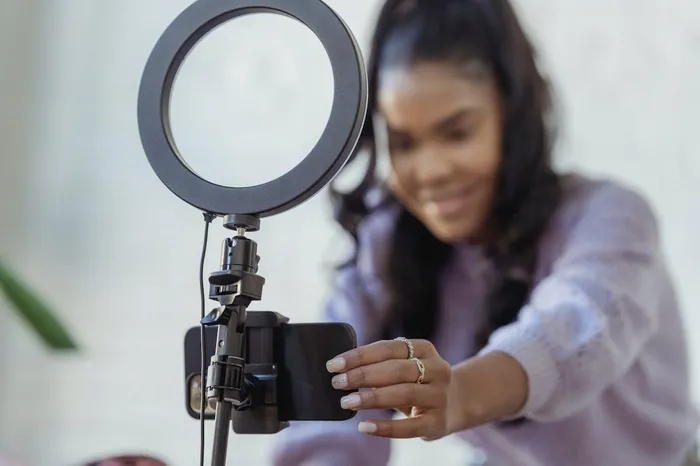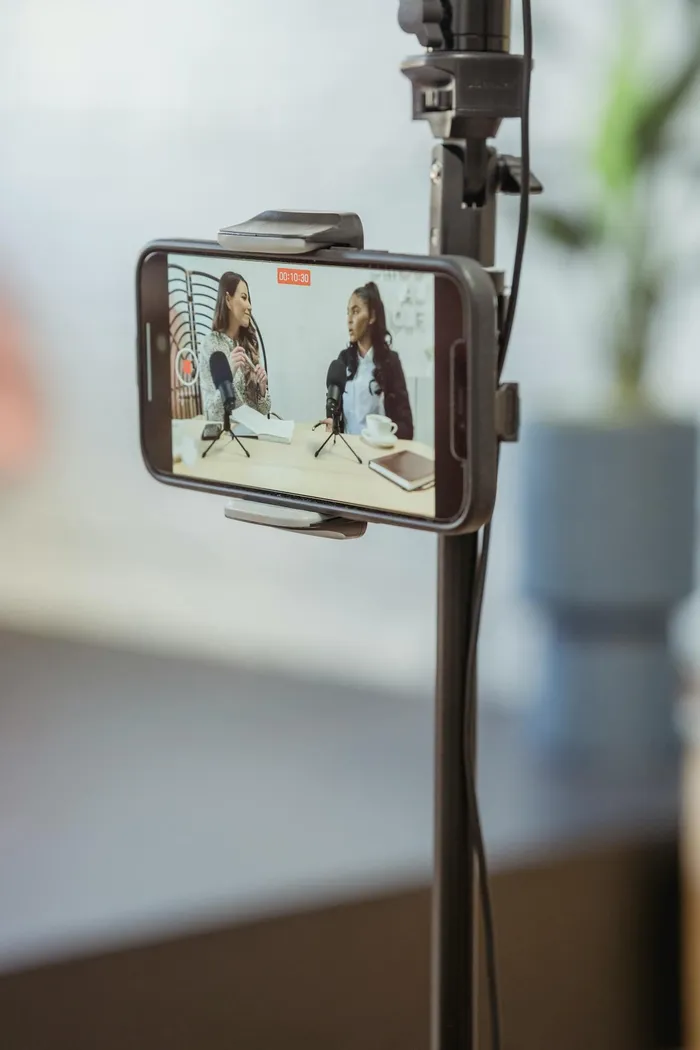Scrolling for support: are TikTok's #MentalHealthTips misleading? Experts speak out
MENTAL HEALTH

TikTok posts misuse therapeutic terminology, blurring crucial distinctions between "well-being," "anxiety," and "mental disorders".
Image: George Milton/pexels
Social media has become a lifeline for many seeking mental health support, with platforms like TikTok offering a space where users share personal stories, coping tips, and advice.
But beneath the surface of bite-sized videos and catchy #mentalhealthtips lies a troubling reality: misinformation is rife, and it’s spreading fast.
A recent investigation by "The Guardian" revealed that more than half of the top 100 mental health advice videos on TikTok contain misleading or outright false information.
The problem with TikTok therapy
From eating an orange in the shower to reduce anxiety to promoting supplements like saffron and holy basil as cure-alls, the mental health advice circulating on TikTok is often dubious at best.
Some videos claim that trauma can be resolved in an hour, while others mislabel normal emotional experiences as symptoms of serious mental illnesses like borderline personality disorder or abuse.
Dr David Okai, a consultant neuropsychiatrist from King’s College, London, reviewed anxiety and depression-related videos as part of the investigation by "The Guardian".
He noted that many posts misuse therapeutic language, blurring terms like “well-being”, “anxiety”, and “mental disorder”.
This not only confuses viewers but also distorts the reality of what living with a mental illness entails.
“These short-form, attention-grabbing soundbites overshadow the more nuanced realities of qualified therapeutic work,” Okai explained. While therapy is a proven tool for mental health care, TikTok videos often present it as a one-size-fits-all solution or a magical quick fix, which it is not.

TikTok’s portrayal of mental health tips as universal truths not only spreads misinformation but can also leave viewers feeling worse.
Image: George Milton/pexels
Pathologising normal experiences
One of the most alarming trends highlighted in the investigation is the way TikTok content creators pathologise everyday emotions.
Dan Poulter, an NHS psychiatrist and former UK health minister, reviewed videos about severe mental illness and called out the harm in labelling normal experiences as symptoms of disorders.
“Suggesting that everyday emotions equate to a diagnosis of serious mental illness provides misinformation to impressionable people,” Poulter said.
"It also trivialises the experiences of those living with actual severe mental health conditions.”
Resolve Trauma in 30 seconds? Think again. Trauma-related videos are another area rife with oversimplification.
Amber Johnston, a psychologist accredited by the British Psychological Society, found that while many videos contain “a nugget of truth”, they often over-generalise complex conditions like post-traumatic stress disorder (PTSD).
“Each video suggests that everyone has the same experience of PTSD, with symptoms that can easily be explained in a 30-second reel.
"The truth is that PTSD is a highly individual experience that requires the guidance of a trained clinician to understand and address,” Johnston said.
According to Johnston, TikTok’s portrayal of mental health tips as universal truths not only spreads misinformation but can also leave viewers feeling worse.
“When these tips don’t ‘fix’ someone, they may feel like they’ve failed, which is not only untrue but harmful.”

While platforms like TikTok can play a positive role in normalising mental health conversations, they’re not a substitute for professional care.
Image: cottonbro studio /pexels
In South Africa, where our access to mental health care is often limited by cost, stigma, and a shortage of professionals, TikTok’s mental health advice may feel like an accessible alternative.
As a result, the risks of misinformation are magnified in a country where mental health literacy is still developing.
For many South Africans, platforms like TikTok may be the first place they encounter discussions about mental health. While this has the potential to reduce stigma, it also makes the dissemination of accurate, evidence-based information even more critical.
What the experts and platforms are saying, TikTok, for its part, defends its role as a platform where people share their authentic mental health journeys.
A spokesperson for the company stated, “TikTok is a place where millions of people come to find a supportive community. We proactively work with health experts like the WHO and NHS to promote reliable information and remove harmful misinformation before it’s reported to us.”
The company claims to remove 98% of harmful content before it reaches users, but experts argue that this isn’t enough.
Okai stressed that while personal stories have value, they should not be mistaken for professional advice.
“General advice based on narrow personal experiences isn’t universally applicable,” he said.
How to spot misinformation
For South Africans turning to social media for mental health support, knowing how to identify reliable information is key.
Here are a few tips:
1. Check the source: Does the video reference credible studies, professionals, or organisations?
2. Be wary of quick fixes: Mental health recovery takes time; beware of advice promising instant results.
3. Avoid self-diagnosis: If a video resonates with you, use it as a starting point to seek professional advice, not as a substitute.
4. Question universal claims: Mental health experiences are deeply individual; anything suggesting a “one-size-fits-all” solution should raise a red flag.
While platforms like TikTok can play a positive role in normalising mental health conversations, they’re not a substitute for professional care.
Related Topics: